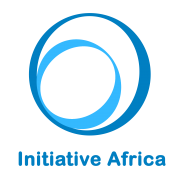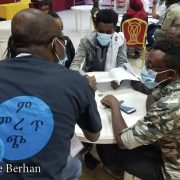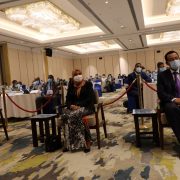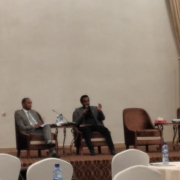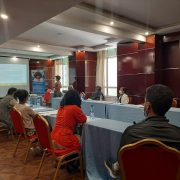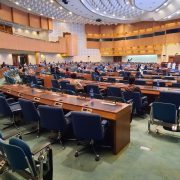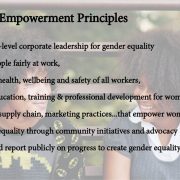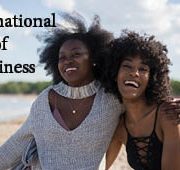Initiative Africa conducted First time voters’ education program
/0 Comments/in News /by initiativeadminInitiative Africa carried out several training and discussion sessions for the first-time voters in universities and youth groups over 10 locations in different regions across the nation. The chosen locations were Diredawa, Ambo, Adama, Bahirdar, Debrebirhan, Hawassa, Gondar, Wolayta, Arbaminch and Wello.
The training focused on the importance of youth participation in the election, the basics of the election and the procedures of voting. The program was entertaining as it includes a mock -election, short play that was well accepted by the participants as the performance added the youth’s point of view and talents.
In addition, a group of 5 women were selected among the trainees and were given TOT and facilitation training on first time voter education and discussion. The women in turn cascaded the training to their peers in their community.
The trainings proved to be fruitful, and the youth shared their point of view and understanding to learn from one another and discussed through dialogue.
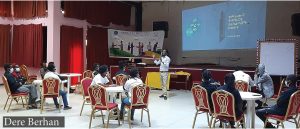
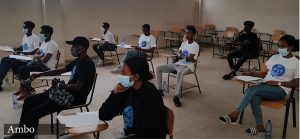

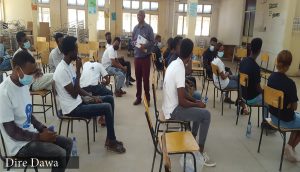
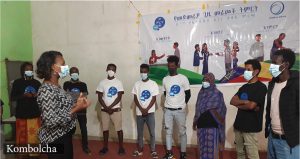
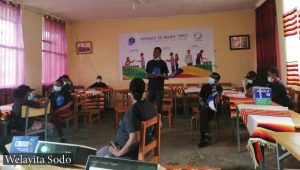
Mayors-Private Sector Conference
/0 Comments/in News /by initiativeadminInitiative Africa (IA) co-facilitated the Mayors-Private Sector Conference which took place on May 6th and 7th which was titled ” Cities as Engines of Business Proliferation: What is Missing in Ethiopian Context?”. The thematic areas of the discussion sessions were:
- Traineeship, apprenticeships and internship: key changes and good practices in cities
- Changing mind-sets towards entrepreneurship – how can they be made more attractive in building businesses in cities?
- Schemes and sources of financing and financing models for entrepreneurship in cities
- Preserving cities while growing them
- Leveraging cities’ potential for their growth
The conference was aimed at increasing Mayors’ understanding of their own entrepreneurship eco-system, discovering innovative policies that improve economic outcomes, and implementing those policies within their unique cities.
The conference was attended by over 50 Mayors, private sector leaders, different Chambers of Commerce and business associations, high level officials from different Ministries and other public offices and other stakeholders working in the Ethiopian Business Environment.
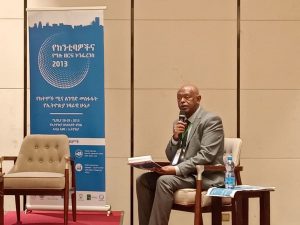

Panel discussion on business recovery and policies for growth in Ethiopia
/0 Comments/in News /by initiativeadminOn April 15th, 2021, Initiative Africa [IA] participated in a panel discussion organized by Social Enterprise Ethiopia [one of the development partners of the Innovative Grant Fund] titled “Business Recovery and Policies for Growth in Ethiopia” at Elilly Hotel.
The discussions were very lively and brought together different stakeholders. Namely, from the public sector – Job Creation Commission, Ministry of Finance, Ministry of Innovation and Technology and Ministry of Trade and Industry. In addition to several business operators, the discussions also included Non-Governmental Organizations which are also working on Business Environment reform in Ethiopia like the Center of International Private Enterprises [CIPE] – East Africa Regional Office and Reach for Change.
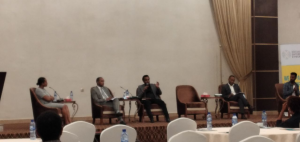
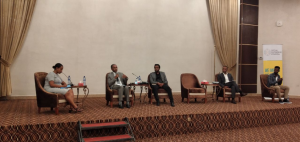
Voters Education training of Trainers
/3 Comments/in News /by initiativeadminInitiative Africa held the Training of Trainers Program for the 6th National Election voter education program on April 7, 2021 at Harmony Hotel. The training focused on Electoral Laws and Processes, Civil rights and responsibilities in democratic election, Election Observers and Their Roles.
The program will cascade in 10 universities across the nation


Gender Review of Print Media in Ethiopia
/4 Comments/in News /by initiativeadminInitiative Africa’s study on women’s participation in print media draft report was presented last week in the presence of invited guests. The study focuses on four selected newspapers and covered 6-month issues.
For more Ghion Magazin
and
Draft report Gender review of print media-first draft (IA-MCH-DOC-REP-21-002)
Women’s Leadership Conference
/0 Comments/in News /by initiativeadminAshagari consultancy in Partnership with Initiative Africa (IA) and other organizations held women’s Leadership Conference on the theme ‘Beyond Political Quota Commercial’ at UNCEA on March 31-2021. Leaders and Representatives from Governmental organization, private sectors and CSOs attended the conference. The conference was opened by a welcoming speech by W/o Mekides Gebireweld, the founder and Managing Director of Ashagari Consultancy.
Following that Wz.Aster Tilahun from ARDAN, her speech was focused on RED CARD for violence and discrimination against women and girls, which was an interesting topic in the conference.
Other speckers from different organizations take the stage and presented their speechs on different topics: to recall a few
Unconscious Gender Bias and Women’s Leadership by Dr. Azeb -psychiatrist
Embracing Change Together by Mrs Saskia Kioezeman –Consultant and
Learn -Live -Lead: Leadership tool to expand influence by Wz. Mekdes Gebrewold
The participants were actively forwarding their questions and suggestions following each speakers and ideas raised which enriched the discussion.
These types of conferences won’t be the last as Ashagari Women and IA are in partnership to make it an annual event.
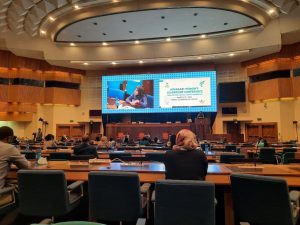
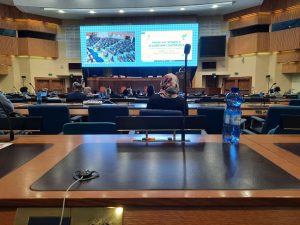
What is Women’s Empowerment and Principles
/0 Comments/in News /by initiativeadminWomen’s empowerment can be defined to promoting women’s sense of self-worth, their ability to determine their own choices, and their right to influence social change for themselves and others.
It is closely aligned with female empowerment – a fundamental human right that’s also key to achieving a more peaceful, prosperous world.
In Western countries, female empowerment is often associated with specific phases of the women’s rights movement in history. This movement tends to be split into three waves, the first beginning in the 19th and early 20th century where suffrage was a key feature. The second wave of the 1960s included the sexual revolution and the role of women in society. Third wave feminism is often seen as beginning in the 1990s.
Women’s empowerment and promoting women’s rights have emerged as a part of a major global movement and is continuing to break new ground in recent years. Days like International Women’s Empowerment Day are also gaining momentum.
But despite a great deal of progress, women and girls continue to face discrimination and violence in every part of the world.
source World Vision
International Day of Happiness
/0 Comments/in News /by initiativeadminWhat is the International Day of Happiness? It’s a day to be happy, of course! Since 2013, the United Nations has celebrated the International Day of Happiness as a way to recognize the importance of happiness in the lives of people around the world. In 2015, the UN launched the 17 Sustainable Development Goals that seek to end poverty, reduce inequality, and protect our planet three key aspects that lead to well-being and happiness. Last year, the Smurfs rallied behind the 17 Sustainable Development Goals for the International Day of Happiness.
The United Nations invites each person of any age, plus every classroom, business and government to join in celebration of the International Day of Happiness.
Address
Cameroon Street, Lucky Bldg.
Tel: +251 116 622640 / 622641
Fax: +251 116 622642
Email: info@initiativeafrica.net
Office Hours:
Mon -Fri : 8.00Am – 5.30Pm

